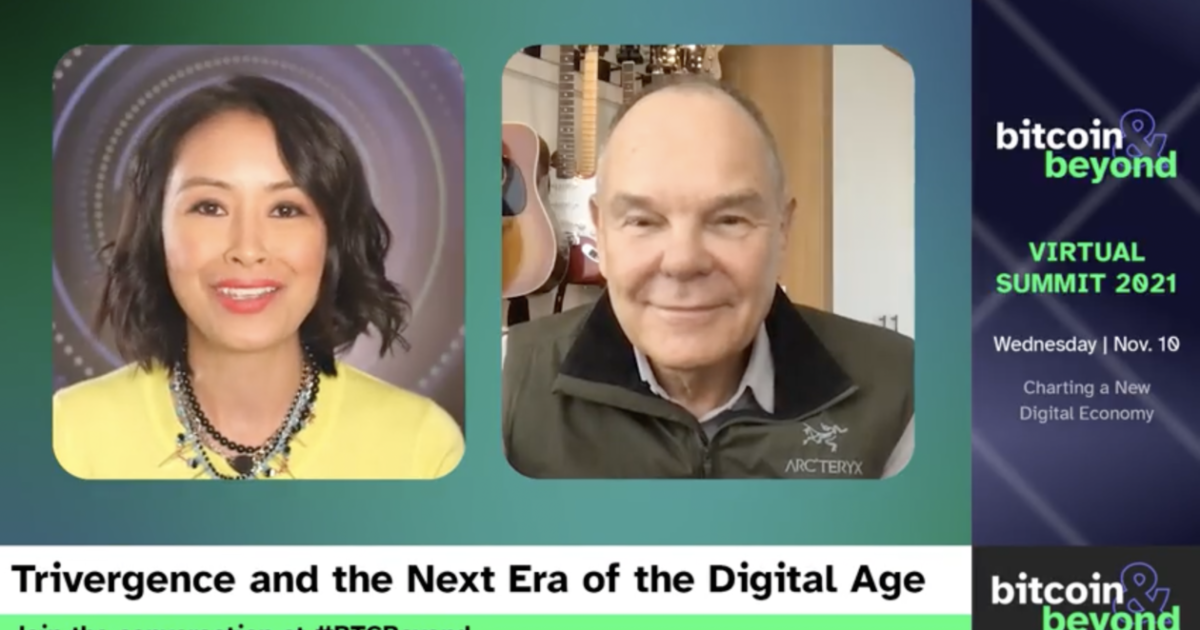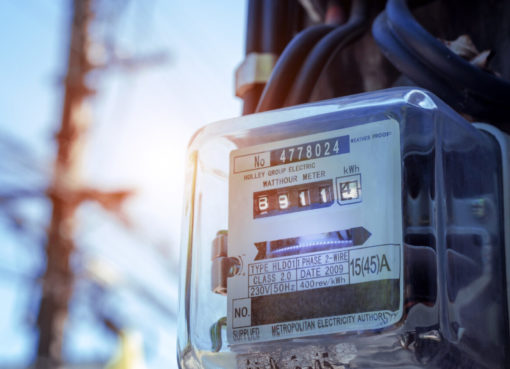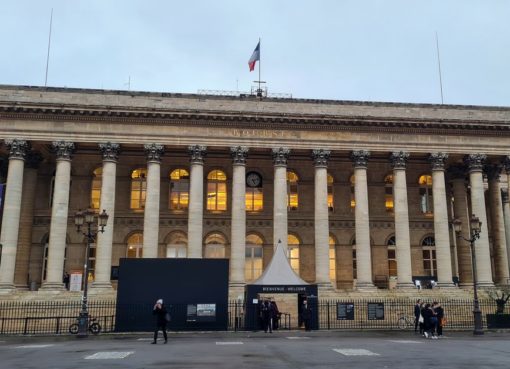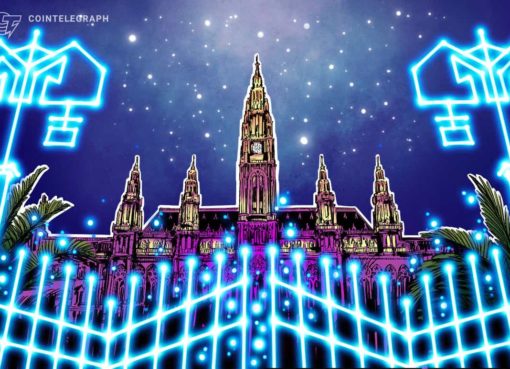Blockchain has caused a paradigm shift that is redefining trust building and top-down business operations. And it comes along at the same time as other disruptive technologies such as artificial intelligence and the internet of things. As organizations and businesses adapt, they will face big issues that will require even bigger ideas to solve them. Don Tapscott, co-founder and executive chairman of the Canadian think tank Blockchain Research Institute, says the advance of these three technologies will compel rethinking of basic ideas such as trust, privacy and the biggest of all, what humans owe each other in society. In “Trivergence and the Next Era of the Digital Age,” the keynote at Forkast’s Bitcoin and Beyond Virtual Summit held on Nov. 10, Tapscott spoke with Angie Lau, editor-in-chief of Forkast.News, about “finding the leader within each of us to be able to participate and collaborate with others to to bring about hopefully the smaller, more decentralized world.”
As head of a four-year-old, independent blockchain think tank, Tapscott has observed the recent transformation blockchain technology has had on business, including the “notion of the trust protocol, that [blockchain] is a native digital medium for trust.”
“Bitcoin was just the tip of the iceberg about something much bigger,” Tapscott said. “It’s going to change the deep structure and architecture of the corporation and how we orchestrate value, really, and orchestrate capability to create goods and services, because this will lower transaction costs in an open market, meaning that a lot of what firms do today can be done in a decentralized way.”
While the pandemic sped up digital transformation, Tapscott also spoke about the data used for operation and privacy concerns at the intersection of blockchain, IoT, and business. Issues concerning access to health data hampered countries’ response to COVID-19, for example. “In our systems, our health data is buried in all these silos, so we can’t aggregate it together socially and in an anonymized way for epidemiologists to stop a pandemic in its tracks before it gets going,” he said. “A huge issue for me is [to] create a sovereign identity for us as citizens that we own …. All of this [data] is created by you and comes from you. But it gets captured by these digital conglomerates.”
Privacy has already been undermined and eroded, Tapscott acknowledges, but he disagrees with those who tell him to “get over it.”
“Privacy is the foundation of freedom, and we need to get our identities back and own them,” he said, “not just to have access, but own them so that we can manage them responsibly for our own benefit. And without that, I don’t think you get prosperity ultimately.”
Tapscott described how blockchain is creating a paradigm shift toward decentralization, and that many of the effects will cause problems that must be solved, including the imminent obsolescence of popular jobs today, such as truck driver or cashier. How will society find ways to keep people occupied in meaningful work? This will demand rethinking of the social contract, he said. “We need a declaration of interdependence,” he added.
Tapscott has written 18 books, including “Wikinomics: How Mass Collaboration Changes Everything,” which has been translated into 25 languages, and the most recent work, “Platform Revolution: Blockchain Technology as the Operating System of the Digital Age” that was published on November 1.
In February, the Blockchain Research Institute issued a report that outlined recommendations for the Biden administrations on how to approach, regulate and lead blockchain technology. Through technologies like blockchain, Tapscott said in a previous interview with Forkast.News, “[we can] reinvent the model of government, to make it more open, more responsive — more like a network, as opposed to an old command-and-control bureaucracy.”
Blockchain is not just disrupting the internet, but the fabric of our society as well. Tapscott, a grandfather, said this is an opportunity for everyone to participate in remaking our world for the next generation.




